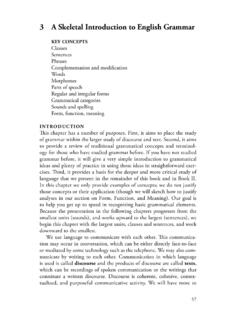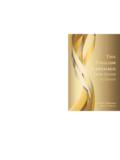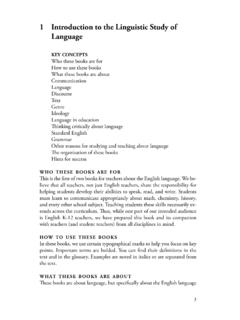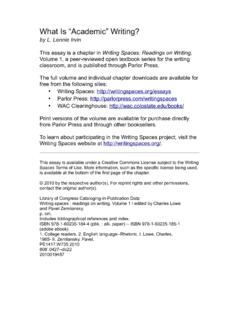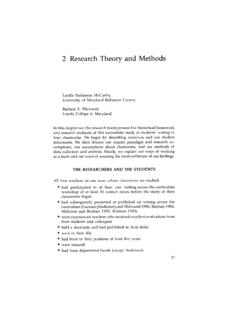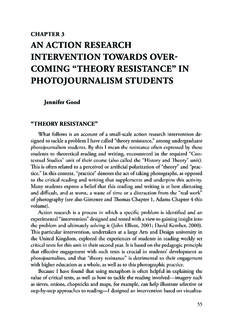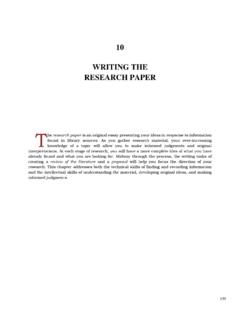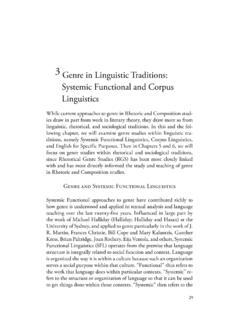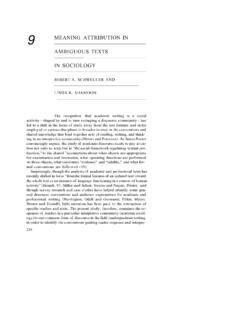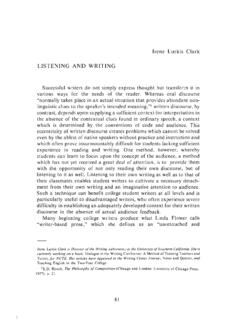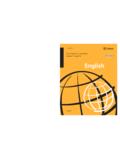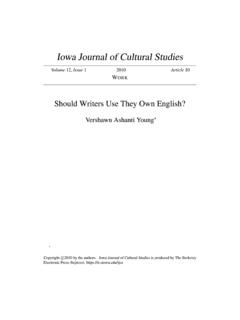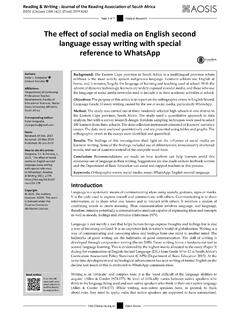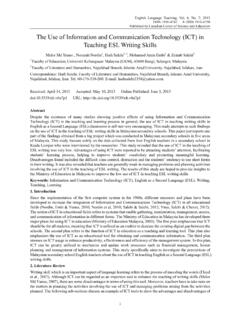Transcription of David Bartholomae INVENTING THE UNIVERSITY
1 David Bartholomae INVENTING THE UNIVERSITY1 Education may well be, as of right, the instrument whereby every in dividual. in a society like our own, can gain access to any kind of discourse. But we well know that in its distribution, in what it permits and in what it prevents, it follows the well-trodden battle-lines of social conflict. Every educational system is a political means of maintaining or of modifying the appropriation of discourse, with the knowledge and the powers it carries with it. Foucault, "The Discourse on Language" (227) Every time a student sits down to write for us, he has to invent the UNIVERSITY for the occasion-invent the UNIVERSITY , that is, or a branch of it, like History or Anthropology or Economics or English.
2 He has to learn to speak our language, to speak as we do, to try on the peculiar ways of knowing, selecting, evaluating, reporting, concluding, and arguing that define the discourse of our community. Or perhaps I should say the various discourses of our community, since it is in the nature of a liberal arts education that a student, after the first year or two, must learn to try on a variety of voices and interpretive schemes-to write, for example, as a literary critic one day and an experimental psychologist the next, to work within fields where the rules governing the presentation of examples or the development of an argument are both distinct and, even to a professional, mys terious.
3 The students have to appropriate (or be appropriated by) a specialized discourse, and they have to do this as though they David Bartholomae is Associate Professor of English and Director of Composition at the UNIVERSITY of Pittsburgh. He has served on the executive committees of CCCC, WPA, and the College Section of NCTE. He has just been elected Assistant Chair of CCCC. He has written extensively on basic writing and basic writers. Journal of Basic Writing, Vol. 5, No. 1, 1986 4 DOI: easily and comfortably one with their audience, as though they were members of the academy, or historians or anthropol-ogists or economists; they have to invent the UNIVERSITY by as-sembling and mimicking its language, finding some compromise between idiosyncracy, a personal history, and the requirements of convention, the history of a discipline.
4 they must learn to speak our language. Or they must dare to speak it, or to carry off the bluff, since speaking and writing will most certainly be required long before the skill is "learned." And this, understand-ably, causes problems. Let me look quickly at an example. Here is an essay written by a college freshman, a basic writer: In the past time I thought that an incident was creative was when I had to make a clay model of the earth, but not of the classical or your everyday model of the earth which consists of the two cores, the mantle and the crust. I thought of these things in a dimension of which it would be unique, but easy to comprehend.
5 Of course, your materials to work with were basic and limited at the same time, but thought help to put this limit into a right attitude or frame of mind to work with the clay. In the beginning of the clay model, I had to research and learn the different dimensions of the earth (in magnitude, quantity, state of matter, etc.) After this, I learned how to put this into the clay and come up with something different than any other person in my class at the time. In my opinion, color coordination and shape was the key to my creativity of the clay model of the earth. Creativity is the venture of the mind at work with the mechanics relay to the limbs from the cranium, which stores and triggers this action.
6 It can be a burst of energy released at a precise time a thought is being transmitted. This can cause a frenzy of the human body, but it depends of the characteristics of the individual and how they can relay the message clearly enough through mechanics of the body to us as an observer. Then we must determine if it is creative or a learned process varied by the individuals thought process. Creativity is indeed a tool which has to exist, or our world will not succeed into the future and progress like it should. am continually impressed by the patience and good will of our students. This student was writing a placement essay during freshman orientation.
7 (The problem set to him was, "Describe a 5 time when you did something you felt to be creative. Then, on the basis of the incident you have described, go on to draw some general conclusions about 'creativity'.") He knew that UNIVERSITY faculty would be reading and evaluating his essay, and so he wrote for them. In some ways it is a remarkable performance. He is trying on the discourse even though he doesn't have the knowledge that makes the discourse more than a routine, a set of conventional rituals and gestures. And he does this, I think, even though he knows he doesn't have the knowledge that makes the discourse more than a routine.
8 He defines himself as a researcher, working systematically, and not as a kid in a high school class: " I thought of these things in a dimension of .. "; "had to research and learn the different dimensions of the earth (in magnitude, quantity, state of matter, etc.)." He moves quickly into a specialized lan-guage (his approximation of our jargon) and draws both a general, textbook-like conclusion ("Creativity is the venture of the mind at work .. ")and a resounding peroration ("Creativity is indeed a tool which has to exist, or our world will not succeed into the future and progress like it should.)
9 ") The writer has even, with that "indeed" and with the qualifications and the parenthetical expressions of the opening paragraphs, picked up the rhythm of our prose. And through it all he speaks with an impressive air of authority. There is an elaborate but, I will argue, a necessary and enabling fiction at work here as the student dramatizes his experience in a "setting" -the setting required by the discourse-where he can speak to us as a companion, a fellow researcher. As I read the essay, there is only one moment when the fiction is broken, when we are addressed differently. The student says, "Of course, your materials to work with were basic and limited at the same time, but thought help to put this limit into a right attitude or frame of mind to work with the clay.
10 " At this point, I think, we become students and he the teacher, giving us a lesson (as in, "You take your pencil in your right hand and put your paper in front of you."). This is, however, one of the most characteristic slips of basic writers. It is very hard for them to take on the role-the voice, the person-of an authority whose authority is rooted in scholarship, analysis, or research. they slip, then, into the more immediately available and realizable voice of authority, the voice of a teacher giving a lesson or the voice of a parent lecturing at the dinner table. they offer advice or homilies rather than "ac-ademic" conclusions.
